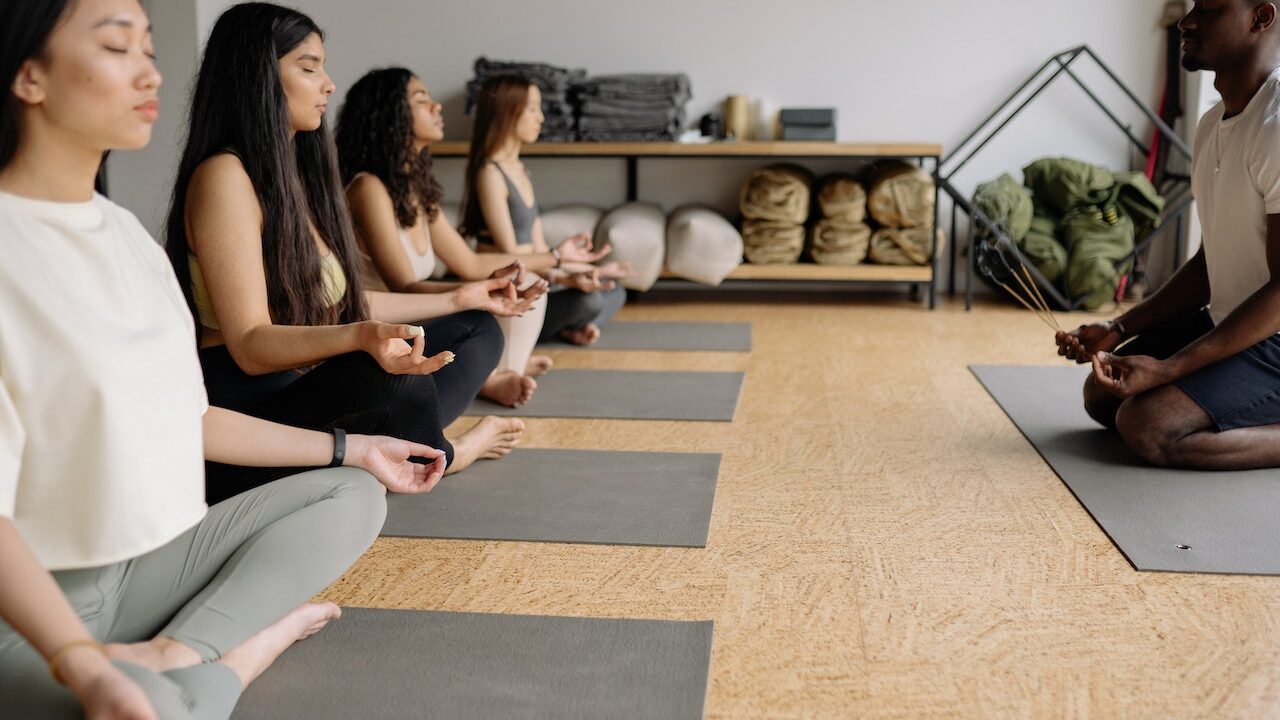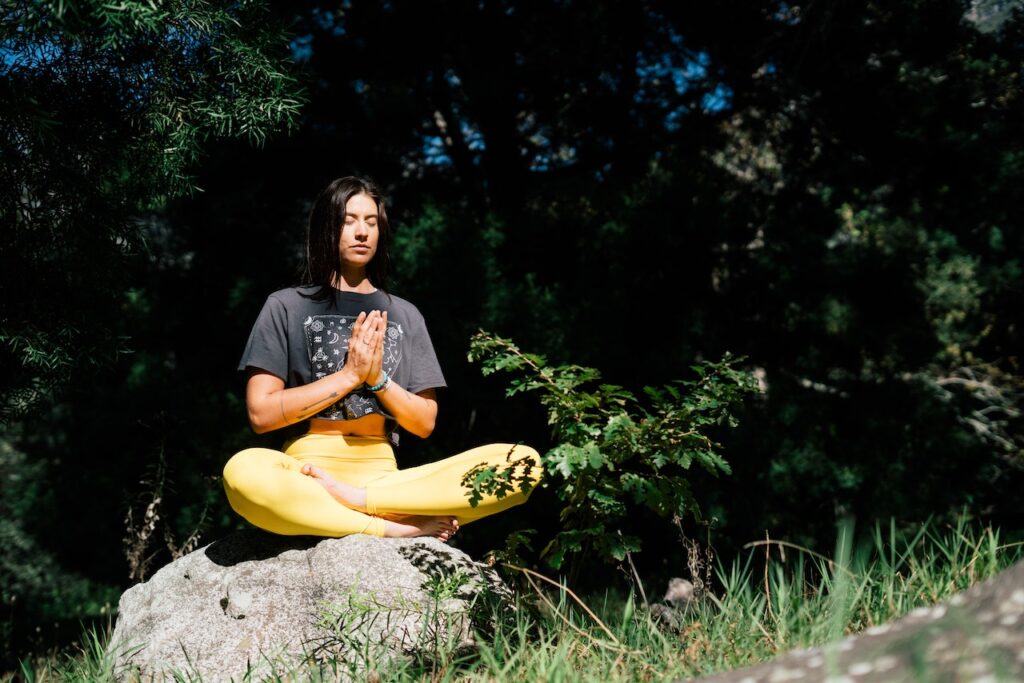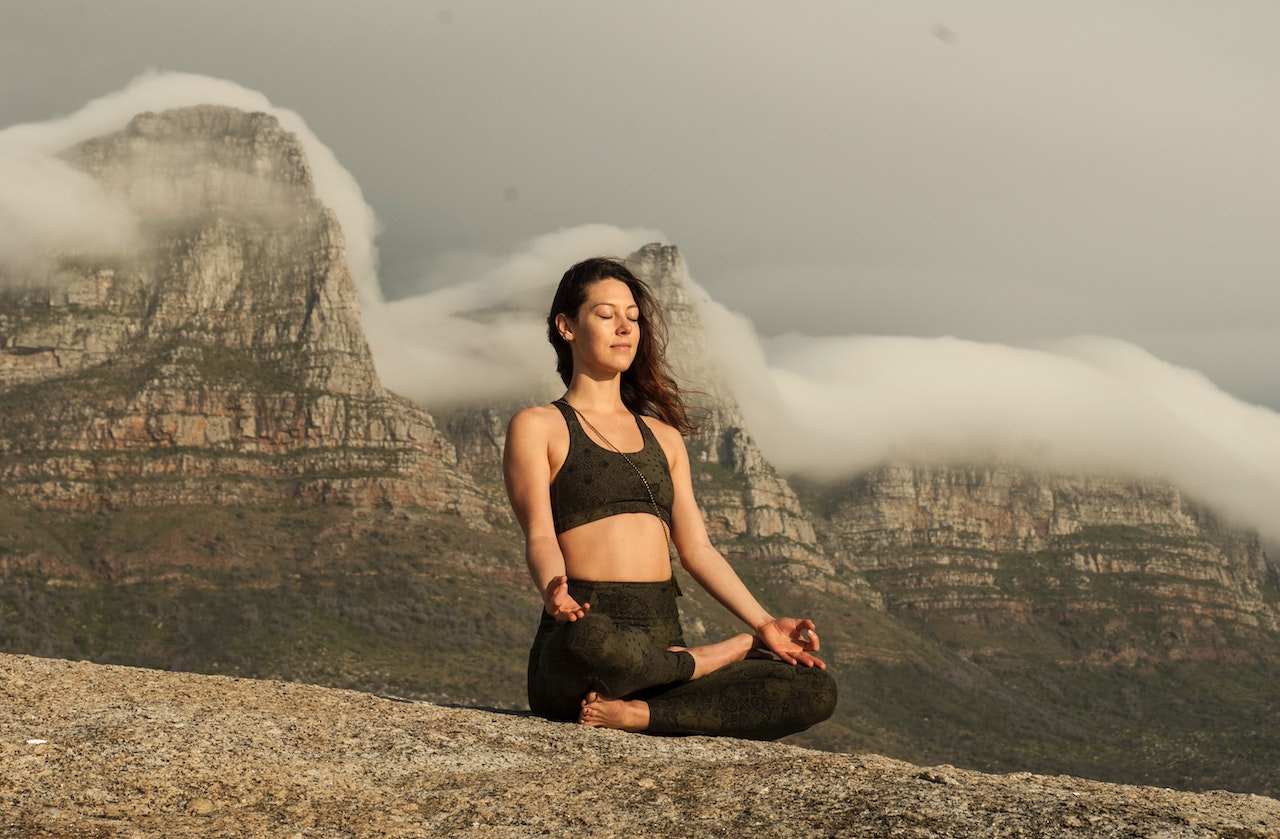Vipassana meditation is a powerful practice that offers a multitude of benefits to those who practice on this journey of self-discovery. Whether you’re new to meditation or have some experience, Vipassana can be a transformative practice for everyone. let’s see more about The Benefits of Vipassana Meditation and How to Get Started
Vipassana meditation, often referred to as insight meditation, is a profound practice that has been cultivated for centuries to foster self-awareness and inner peace. In this guide, we will explore what Vipassana meditation is, the myriad benefits it offers, and how beginners can start their own transformative journey.
What is Vipassana Meditation?

Vipassana, which means “insight” in Pali, is an ancient form of meditation that focuses on self-observation and mindfulness. It’s all about understanding the true nature of your mind and emotions.
At its core, Vipassanā meditation is a mindfulness practice that encourages you to observe your own mind and body. Derived from the Pali language, “Vipassanā” means insight or clear-seeing. This ancient technique traces its roots back to the teachings of Siddhartha Gautama, also known as the Buddha.
The Benefits of Vipassana Meditation

Vipassana offers a range of advantages, including stress reduction, increased self-awareness, and improved emotional resilience. Regular practice can lead to greater clarity of thought, enhanced concentration, and a deeper sense of inner peace.
Vipassana meditation offers a wide range of benefits, both for your mental and physical well-being. Let’s delve into some of the most significant advantages of this practice:
Stress Reduction: Vipassana meditation helps you develop mindfulness and equanimity in the face of stressors. Through focused observation, you can learn to respond to stressful situations with greater calm and clarity.
Enhanced Self-Awareness: This meditation encourages introspection, allowing you to gain deeper insights into your thoughts, emotions, and behaviors. You become more attuned to your inner world.
Emotional Resilience: With continued practice, you can develop emotional resilience by learning to accept and understand your feelings without judgment. This can help you manage difficult emotions more effectively.
Improved Concentration: Vipassanā meditation sharpens your ability to concentrate. As you learn to observe your breath or bodily sensations, your mind becomes less scattered and more focused.
Greater Clarity of Thought: Over time, Vipassanā meditation can lead to enhanced mental clarity. You’ll find it easier to make decisions and solve problems with a clear and tranquil mind.
Deep Inner Peace: Ultimately, the goal of Vipassanā is to attain a profound sense of inner peace and liberation from suffering. It offers a path to spiritual growth and a deeper understanding of your true self.
How to Get Started with Vipassanā Meditation

To begin your Vipassanā journey, find a quiet space, sit comfortably, and start by focusing on your breath. Observe your thoughts and sensations without judgment. Gradually, you’ll develop the skills to delve deeper into your inner self, gaining valuable insights along the way.
Whether you’re seeking stress relief or a deeper understanding of your mind, Vipassanā meditation can be your path to a more balanced and peaceful life.
Now that we’ve explored the benefits of Vipassanā meditation, let’s dive into how beginners can start their practice:
Find a Quiet Space: Select a peaceful and quiet place where you won’t be easily distracted. Create a serene environment that supports your meditation practice.
Comfortable Seating: Sit comfortably on a cushion or chair with your back straight. Your posture should be relaxed but alert, helping you stay attentive during the meditation.
Begin with Mindfulness of Breath: A common starting point is to focus on your breath. Pay close attention to the natural rhythm of your breath as it enters and leaves your nostrils or the rise and fall of your abdomen.
Observe Sensations: Gradually, shift your attention to bodily sensations. Start with your head and work your way down to your toes, noting any sensations, discomfort, or tension without judgment. This helps cultivate mindfulness.
Thoughts and Emotions: As thoughts or emotions arise, acknowledge them without attachment or aversion. Simply observe them as passing phenomena and return your focus to your chosen point of meditation, such as the breath or bodily sensations.
Start with Short Sessions: For beginners like the Vipassana 10-day course, it’s advisable to start with short meditation sessions, perhaps 10 to 15 minutes, and gradually increase the duration as you become more comfortable with the practice.
Consistency is Key: Regularity is essential. Try to meditate at the same time each day to establish a consistent practice routine. Over time, the benefits will become more pronounced.
Consider Guided Sessions: If you’re new to Vipassanā meditation, consider using guided meditation apps or videos to help you get started. These can provide valuable instructions and support.
Patience and Persistence: Understand that meditation is a skill that takes time to develop. Be patient with yourself and stay committed to the practice, even when it feels challenging.
Seek Guidance: If you’re serious about deepening your Vipassanā practice, consider attending a Vipassanā retreat or seeking guidance from an experienced meditation teacher. These opportunities can provide valuable insights and guidance on your journey.
Conclusion: Begin Your Journey with Vipassanā MeditationVipassana

Vipassanā meditation is a profound tool for self-discovery and personal growth. Its benefits extend to various aspects of your life, from reducing stress to fostering inner peace.
By following these steps and remaining dedicated to your practice, you can embark on a transformative journey that leads to greater self-awareness and a deeper sense of well-being.
Whether you’re a beginner or have some experience with meditation, Vipassanā offers a path to a more mindful and fulfilling life its also the best idea to practice in vipassana meditation centre or a greate guru like S. N. Goenka
Here’s a Q&A about Vipassanā Meditation:
Q: How do I start practicing Vipassanā Meditation as a beginner?
A: To begin practicing Vipassanā Meditation as a beginner, find a quiet space, sit comfortably with a straight back, and focus your attention on your breath. Gradually, transition to observing bodily sensations and thoughts without attachment or aversion. Start with short sessions and gradually increase the duration as you become more comfortable.
Q: Is it necessary to have previous meditation experience to practice Vipassanā?
A: No, prior meditation experience is not required to start Vipassanā. It’s suitable for beginners as well as experienced meditators. However, guided instruction or attending a Vipassanā retreat can be helpful for newcomers.
Q: What is the goal of Vipassanā Meditation?
A: The primary goal of Vipassanā Meditation is to gain insight (vipassanā) into the impermanent, unsatisfactory, and selfless nature of existence, as taught by the Buddha. Ultimately, the practice aims to alleviate suffering and attain liberation (nirvana).
Q: How often should I practice Vipassanā Meditation for best results?
A: Consistency is key. Aim for daily practice, even if it’s just for a short duration. Regularity helps in cultivating mindfulness and experiencing the full benefits of Vipassanā.
Q: Are there any potential challenges in Vipassanā Meditation, and how can they be addressed?
A: Some challenges in Vipassanā may include restlessness, physical discomfort, or difficulty maintaining focus. These are common and can be addressed by practicing patience, self-compassion, and seeking guidance from experienced meditators or teachers when needed.
Q: Can anyone practice Vipassanā Meditation, regardless of their religious or spiritual beliefs?
A: Yes, Vipassanā Meditation is a secular practice that can be undertaken by individuals of any religious or spiritual background. It is focused on self-awareness and insight into the human condition, making it accessible to a wide range of people.
7 Life-Changing Advice to Become the Best Version of Yourself
